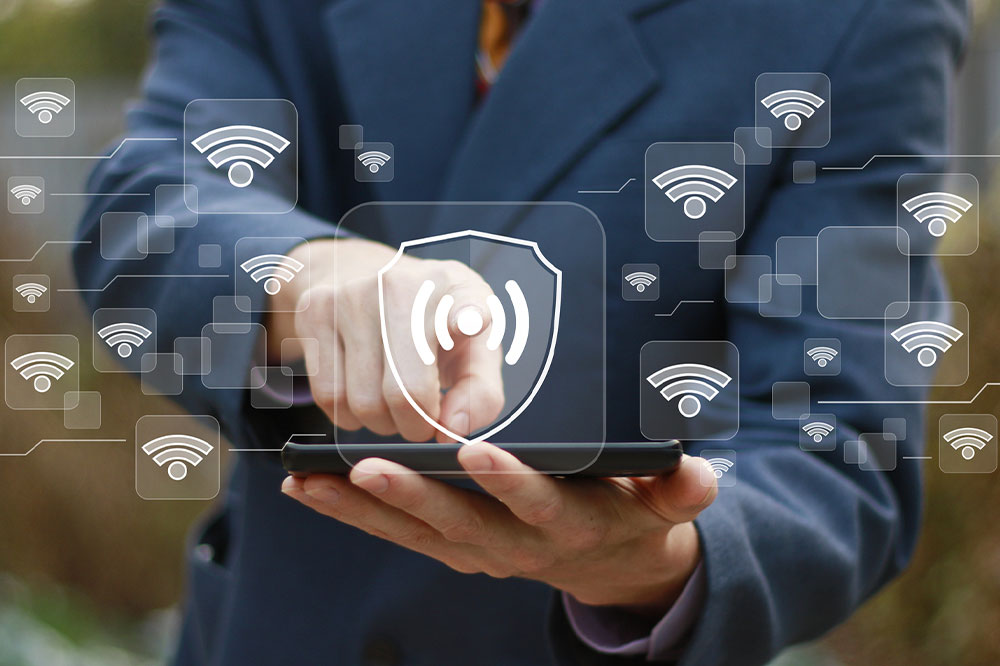Top 10 Tips to Prevent Cyber Attacks

Cyber security is more important than ever in this internet-driven world. With the ever-growing threats to businesses, having a robust security solution like the crowd strike endpoint cyber security becomes quintessential. We have heard enterprises go out of business or pay huge fines because of a simple system lag. There are plenty of risks to ignore, from phishing to ransomware, as one mistake can cost heftily. Here we will discuss ten tips to avoid cyber-attacks.
Get cyber certified
In this digital landscape, there is a vast demand for cybersecurity professionals. Even though companies are looking for experts with this skill and knowledge, the industry has a shortage. Therefore, certifications will help you land a rewarding job and equip you with the necessary expertise to avoid cyber-attacks.
Educate your employees
Employees are usually the access points for cybercrooks to steal your data. These trespassers send phishing emails by masking someone from your company to access confidential files or steal personal information. These links might seem authentic to the untrained, making it easy for them to fall into the trap. Thus, awareness is quintessential. So, you must spend time and resources educating your staff on cyberattack prevention. Always keep them informed about the prevalent cyber assaults and ways to keep them at bay.
Incorporate zero trust inspection
One of the most crucial aspects in preventing cybersecurity is verifying everything and not trusting anything or anyone. It also explains why companies use multi-factor authentication tools like crowd strike endpoint cyber security and encryption. However, some companies tend to misunderstand the zero-trust product or feature. Finally, you must see it as a means to employ a risk-based approach to combat cyberattacks’ impact, likelihood, and frequency while prioritizing the highest-value threats.
Keep your software and systems updated
System and software updates significantly impact your digital security and cyber safety. These updates add new features, fix bugs, and patch the security vulnerabilities and flaws that can be exploited.
Malicious cyber hackers create codes that exploit vulnerabilities. Usually, these codes are packaged as malware and can hamper your system. So, please ensure you conduct a patch management system to auto-manage the updates and uphold information security.
Mitigate cyber threats on your mobile phone
Like computers, even phones have features that make them accessible to attackers. Hence, this device must have crowd strike endpoint cyber security or alternative counter-attack measures. Sadly, not many smartphone users are aware of the security shortcoming. Below we will list a few helpful ways to keep your mobile phone secure:
- Secure your phone via configuration. You can set the password feature on your device. Please pick a complex password, ideally a combination of numerals, symbols, and characters.
- Select devices that stress security features. For example, your phone must have a file encryption feature to protect against malicious apps.
- Never open suspicious links or any malicious pop-ups.
- Do not post your number on public websites.
- Configure your web accounts to ensure you are connected to the internet safely.
- Perform in-depth research before downloading any new app on your phone.
- Take immediate action if your phone gets stolen. Report the incident to the service provider and the organization.
Ensure endpoint protection
Endpoint protection tools like crowd strike endpoint cyber security guard your network, remotely bridged to the devices. Laptops, tablets, and smartphones connected to computer networks are the common access paths for security threats. Hence, take measures to guard these pathways with reliable endpoint protection software.
Regularly back up the data
When your device gets infected by malware or virus or accessed by a cyber hacker, your data is deleted, damaged, or held for ransom by ransomware. Consequently, it becomes impossible for you to access that information. However, if you have a backup or copy of your data, you can easily access it. However, please ensure that the external hard drive you use for data is not connected perenially to the device you are backing up over a local network connection or physically. One of the best remedies against malware is having the ability to restore the information through clean backups because sometimes the attacks do not hand over the decryption key even if you pay the ransom. Thus, having a backup is crucial. It will prevent the need to give money to criminals and is cheaper and more reliable.
Encrypt data when uploading or sharing online
You can also keep your data protected during transfers from cyber criminals by encrypting it or employing a cloud storage service that offers end-to-end encryption. For example, if you use the software for data encryption before storing it, keep your decryption key safe; otherwise, you might lose your data.
In addition, for cyber threat prevention, you can encrypt your network through control panel settings or use a VPN to ensure that your online interactions and data transfers are safe and secure. Companies may gather and store the information employed by cybercriminals, compromising the business data.
Check the strength of your passwords
Employ platforms like howsecureismypassword.net to assess your password’s strength. When picking a password, please note the longer it is, the stronger it is. Typically, a password at least twelve characters long are considered difficult to guess and robust. One of the best tricks is to use a sentence as a password, as that makes it hard to forget. In addition, you must also routinely change your passwords, irrespective of whether you suspect any suspicious activity.
Use firewalls
For online businesses, the website host has an in-built firewall for the server. Beyond that, you must also get one for your computer. Usually, security plug-ins come with an infused firewall. Thus, anytime a cyber-attack is directed toward your computer, the firewall will notify you and ban any trespasser from coming in.